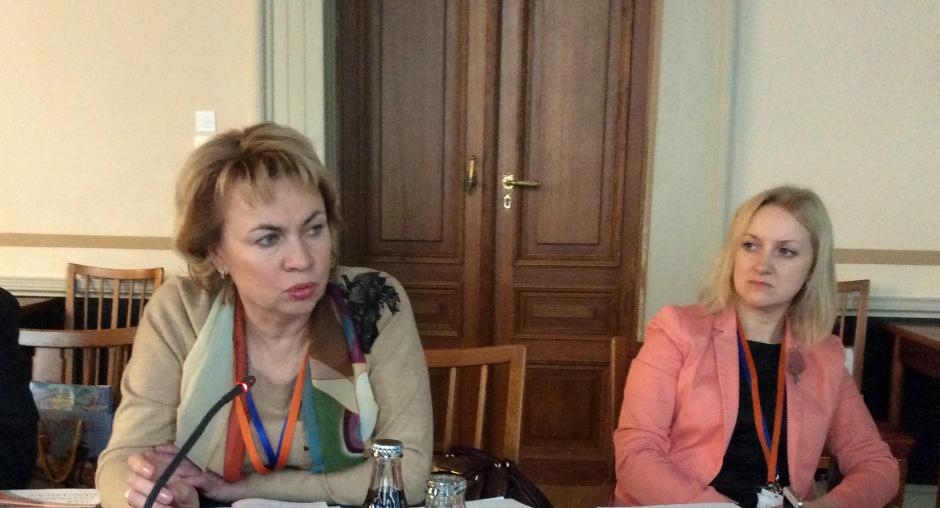Laws and budgets must be analysed from a gender perspective to ensure benefit for all, say participants in OSCE/ODIHR study visit for Belarusian authorities to Vienna

Good practices for analysing laws, policies and budgets from a gender perspective were the focus of a study visit for Belarusian authorities organized by the OSCE Office for Democratic Institutions and Human Rights (ODIHR) in Vienna from 22 to 25 November 2016.
A high-level delegation from Belarus, including representatives of the National Assembly, the ministries of justice, labour and social protection, finance and foreign affairs, the National Committee on Gender Policies, and the Executive Committee of the Commonwealth of Independent States, explored ways for institutionalizing gender analysis in the parliamentary procedures, national budgets, labour and social policies, and on the local level. Good practices for ensuring gender-sensitive legislation and budgeting were presented by their Austrian counterparts, including officials from the parliament, various ministries, and the city of Vienna.
Ajla van Heel, ODIHR’s Adviser on Gender Issues, underlined the importance of gender analysis: “Laws, policies, and budgets must be analysed from a gender perspective to ensure that they benefit all – women and men, boys and girls. In turn, gender equality should be an integral element of all policies of the OSCE participating States.”
“Gender equality is an inherent part of the state policy of the Republic of Belarus. Laws, policies and budgets should always be gender-sensitive,” said Marianna Shchotkina, Deputy Chairperson of the Council of the Republic at the National Assembly. “The exchange of experience with Austrian colleagues is very important for further fruitful work in this sphere and will be used in the legislative process and in the development of gender policy in Belarus.”
This study visit was organized as part of ODIHR’s Project on Strengthening Democratic Governance and Gender Equality in Eastern Partnership countries and builds on ODIHR's ongoing co-operation with Belarus and the CIS Executive Committee to advance gender equality.
